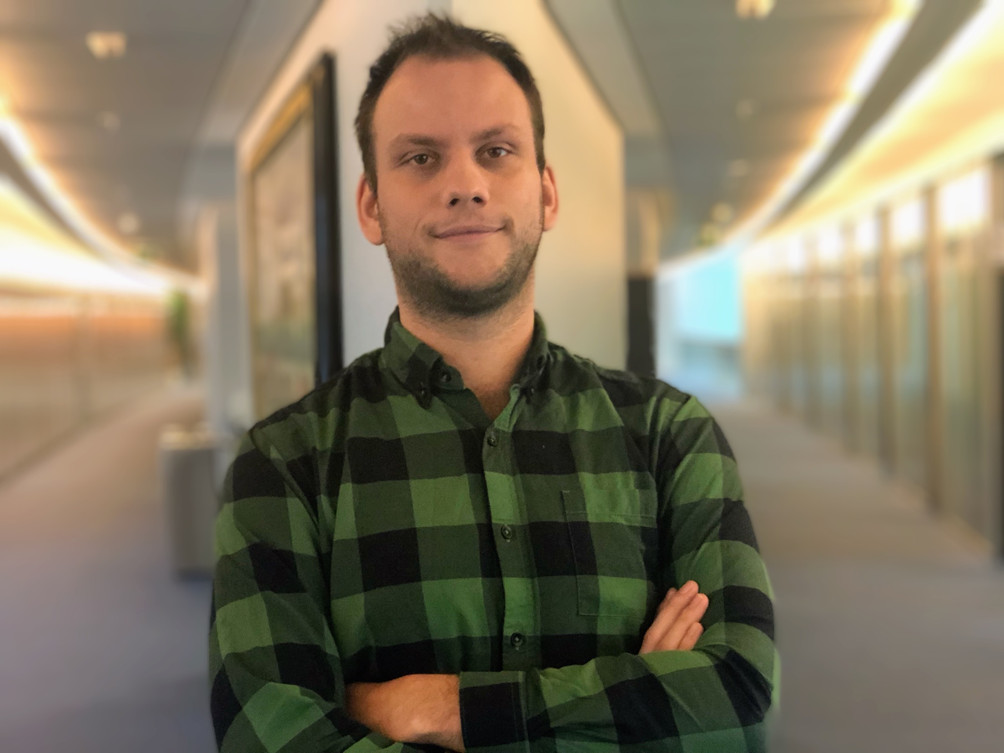Meet Florian Franziskakis: In situ Data Management Specialist joins GEO Secretariat
News / 3 May 2019
Joining the GEO Secretariat team in Geneva, Switzerland, Florian Franziskakis will take on the role of advancing GEO’s in situ data management efforts and the in situ data component of the future GEO Knowledge Hub. We spoke with Florian to learn a bit more about his background and what he will be working on:


Welcome to GEO Florian! Can you tell us a bit about your educational and professional background?
I completed a Master's degree in Earth Science from the University of Geneva, as well a Certificate in GIS Technology which allowed me to gain knowledge on the power of spatial data in domains such as environmental monitoring, disaster risk reduction and sustainable development.
Before joining GEO, I had the chance to work at UN Environment's Global Resource Information Database (GRID), where I focused on spatial data processing to provide authoritative data to stakeholders throughout MapX (https://www.mapx.org), a platform for the sustainable use of natural resources and the environment. I also worked at UN Environment's Crisis Management Branch, for which I was carrying out environmental risk assessments.
What made you want to work with GEO?
My interest in GEO lies in the global impact of its projects and initiatives. I think it is crucial to establish a network where environmental issues are addressed and find practical solutions including governments, UN agencies and participating organizations. In this framework, bringing people together and centralising environmental data remains challenging but can really make a difference, especially in the context of long term objectives set by the Paris Agreement or the Sustainable Development Goals (SGDs).
What will you be working on as part of the GEO Secretariat?
I will be responsible for the in situ data component of the GEO Knowledge Hub, which is a project that aims to enhance trust and visibility for authoritative data about the environment.
To do so, the GEO Knowledge Hub will focus on providing a digital repository where document sets containing complete frameworks will be available (through data itself, as well as published papers, software and code, cloud data and final results).
This project is exciting because it is based on free and open source software, including big data, machine learning and artificial intelligence technologies.The main goal is to build a structure on the FAIR principles (Findable, Accessible, Inter-operable and Resuable) so that final results are reproducible to anyone.
How will you use your work experience with UN Environment (a GEO Participating Organization) to help you with your work at GEO?
My experience at UN Environment will allow me to build bridges with GEO, especially when it comes to sharing data and creating synergies around this ambitious project.
Collaborating with key partners and data providers is critical if we want to establish a reference model for open data policy around the environment, focused on a results-oriented approach.
Is there anything specific you hope to accomplish during your first months or first year?
I hope that my contribution to the Knowledge Hub will result in concrete achievements and will make a difference mainly in providing quick and easy access to trusted data.
Establishing transparency is also a key point so that stakeholders and partners of GEO can rely on authoritative data to take evidence-based decisions. I hope my contribution to the in situ component of the Hub, combined with remote sensing data, will help improve GEOSS (the Global Earth Observation System of Systems), especially by connecting the multiple sources of in situ environmental data through the Hub.